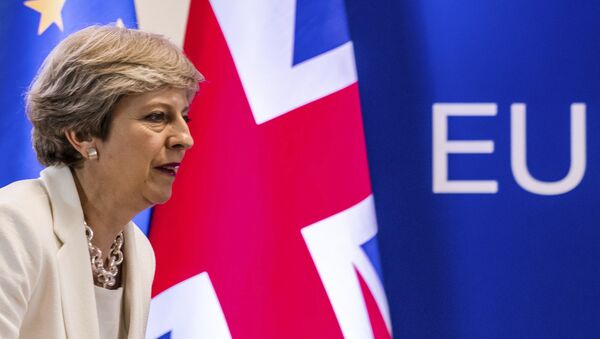Over 130,000 British firms will be forced to pay VAT (value-added tax) up front on all goods imported from the European Union.
The controversial legislation is set to be considered on Monday after the MPs return to Westminster from their two-week holiday.
The move spelled out in the taxation bill as part of the post-Brexit laws now being prepared is likely to cause an uproar among British business groups concerned about the prospects of soaring bureaucracy and pressing cashflow issues.
The Labour MP and former Department for Constitutional Affairs minister Chris Leslie said that the VAT hit to firms was "yet another aspect of Brexit that the Leave campaign failed to inform the public about." He noted that he is set to table urgent amendments to ensure the UK remained in the EU VAT area, which would definitely infuriate pro-Brexit MPs, who are concerned about tax revenues and the UK’s economic sovereignty.
READ MORE: It is 'More Efficient' for Britain to Join a Big Trading Bloc — Analyst
Pro-Brexit Chancellor of the Exchequer Philip Hammond said: "Britain is a great trading nation, and innovative UK businesses are central to the success of our economy."
"This bill represents the first step in setting up an independent UK customs regime and reaffirms our commitment to deliver a smooth transition for businesses as we leave the EU."
For now, UK companies that import machine parts or goods ready for sale from the Eurozone can currently register with HMRC, the UK’s Treasury, to bring them into the country free of tax. Later they register the VAT charge and reclaim it as part of the final price of the product.
Brexit negotiations started in June 2017 are set to be finalized by late March 2019. The first set of talks centered around the protection of rights of EU citizens in the United Kingdom and UK citizens in the European bloc, as well as the UK-Irish border, Gibraltar row and Britain’s financial obligations to the EU.
The second round of talks started in December and is now being resumed following Christmas holiday. It is expected to focus on the two-year transition period in EU-UK relations after the withdrawal, and their future long-term trade, security cooperation and EU court issues.
The government’s flagship EU Withdrawal bill is targeted at repealing the 1972 European Communities Act, which made EU law and European Court of Justice rulings significant part of British law. Most Brexiters see the repeal of the ECA as the ultimate expression of "freedom".
Theresa May has already set an exact time and date, 11pm on March 29, 2019, when Britain will end its 46-year participation in the European project.



